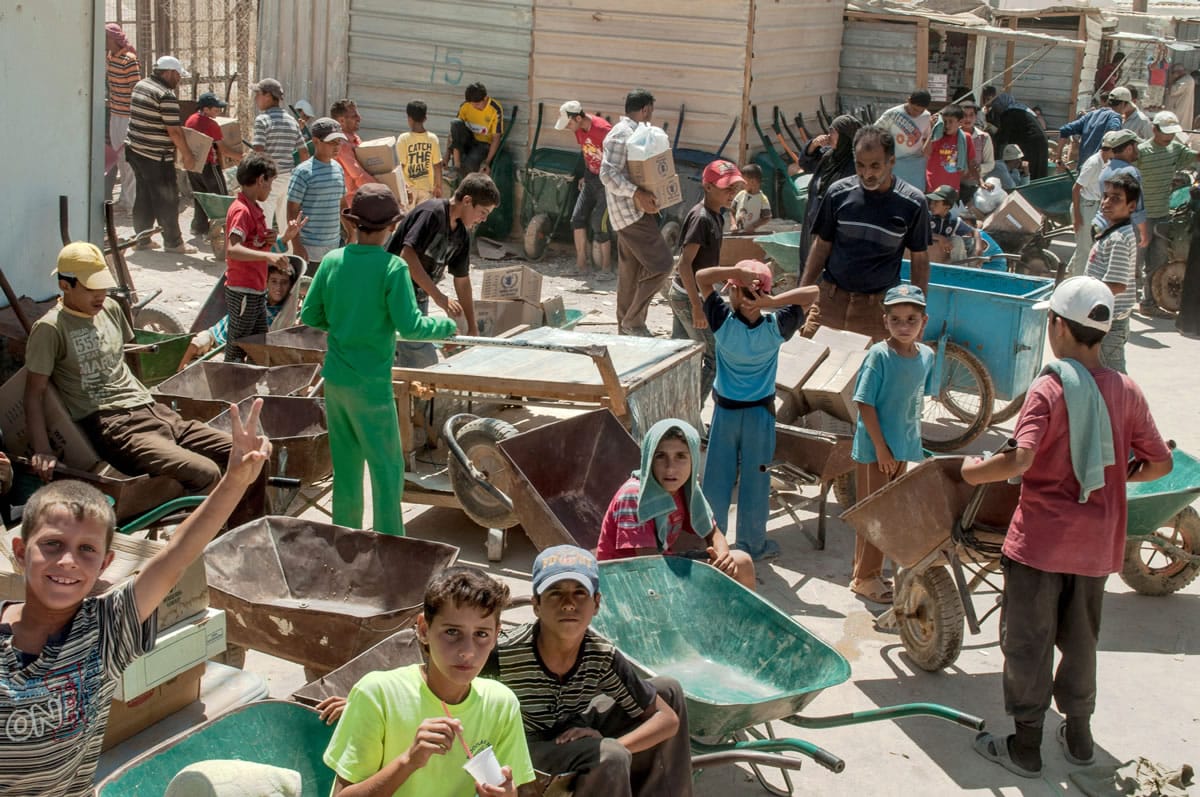ZAHLEH, Lebanon — Every morning in northeastern Lebanon, hundreds of Syrian children are picked up from refugee settlements, loaded onto trucks and taken to the fields or shops for a day’s work that earns $4 or less.
Throughout the day, young boys and girls walk along dirt roads, carrying baskets of fruits and vegetables from the fields to shops. Some are barefoot, while others struggle with the heavy load.
The children, some as young as 7, are cheap labor in Lebanon and Jordan, where they’ve fled the Syrian civil war. And they are fast becoming primary providers for their families as the adults can’t find jobs in exile. They work long hours of manual labor in fields, farms and shops for little pay, according to a U.N. report issued Friday.
More than two million Syrians have fled their country’s civil war, now in its third year, seeking shelter in neighboring countries such as Jordan, Lebanon, Turkey and Iraq. At least half of the refugees — 1.1 million — are children. Of those, some 75 percent are under the age of 12, according to the United Nations refugee agency.



